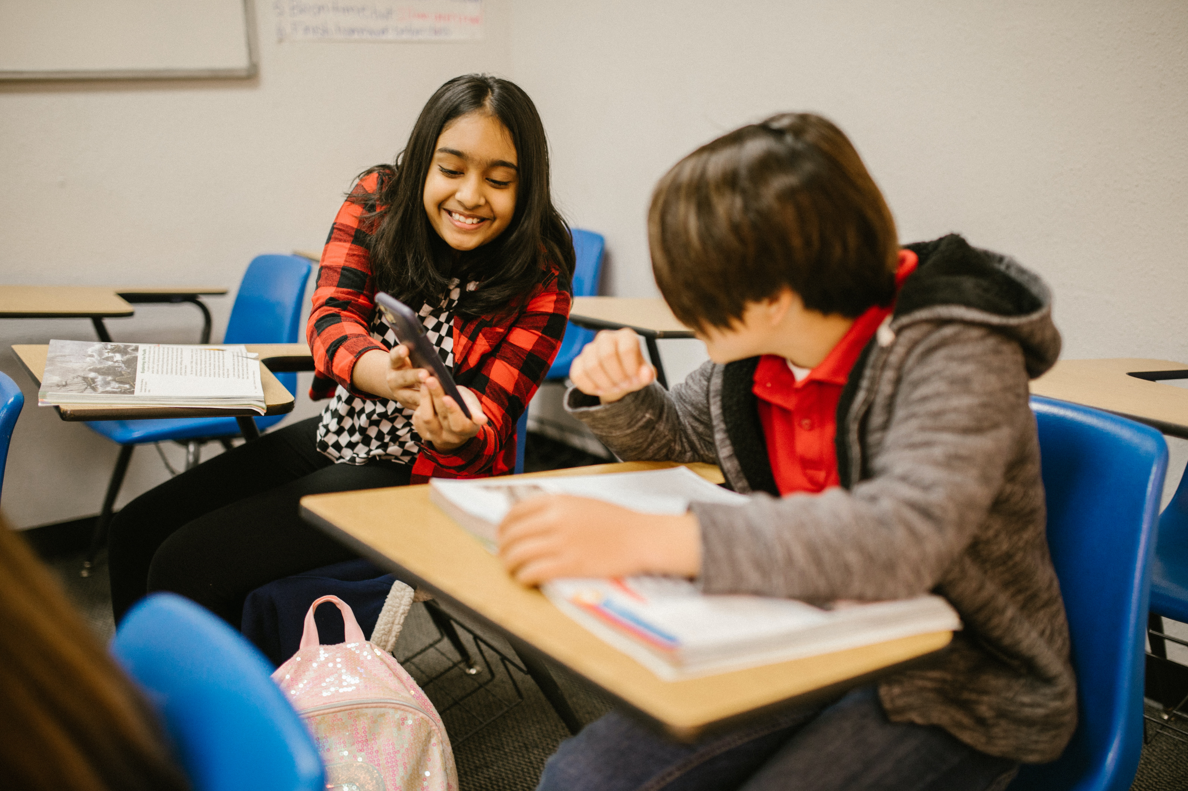 Imagine living in a glass house. Think about everyone watching what you do and how you spend your time. A bit terrifying, right? Today, many kids are living in a sort of virtual glass house. Everything gets documented. They might capture that late-night mac and cheese, snap a pic of their new outfit, or check in at a concert venue.
Imagine living in a glass house. Think about everyone watching what you do and how you spend your time. A bit terrifying, right? Today, many kids are living in a sort of virtual glass house. Everything gets documented. They might capture that late-night mac and cheese, snap a pic of their new outfit, or check in at a concert venue.
Not only is this normal, but it’s also often rewarded. Reputation, followers, likes, and even the ability to earn money (i.e., influencers) are all offered as “rewards” on social media. Too often, kids aren’t aware of how their activity can expose personal information and how this might affect their well-being, mental health, identity, and even physical safety.
We’re going to walk you through some practical, empathetic ways to relate to your kid’s online experience, explain the lack of privacy on social media, and create family rules to help promote safety.
Social Media and Privacy (or Lack Thereof)
To your kids, the blatant lack of privacy on social media might not seem like a problem. Social media and privacy might even sound like a contradiction. Isn’t the whole point of social media to share details about your life, feelings, and whereabouts? How else will people know what your teenager had for lunch today?
Here’s a little context from Pew Research on how most young kids are thinking about social media privacy issues:
- Teens are sharing more about themselves than ever before, including sensitive personal information.
- Kids continue to use social media even after they start to lose interest because it’s a major part of their socialization.
- Only 9% of teens showed concern about 3rd-party access to their personal data.
Introduction to Social Media and Privacy While Online
How can you get your kids more interested in protecting their privacy online? Connecting social media privacy issues to more serious and long-term problems might drive home their importance and relevance to your kids. Below are a few tips for starting a productive conversation about social media privacy issues:
- Make the consequences clear and relatable. The result of something like identity theft is more than inconvenience; it can affect their ability to get into college or get a car loan.
- Don’t make any topic off-limits. Let them know you are even willing to talk about things that involve violent or inappropriate materials.
- Give specific examples of actions that can compromise their privacy. Try asking questions like, “Have you ever told someone you know online but not in real life what school you go to?”
- Use the same privacy rules and recommendations for yourself — they don’t only apply to kids!
- Emphasize that most things done online are permanent, and can sometimes be found online even after profiles appear to be deactivated or deleted.
- Take some time to familiarize yourself with trends, terms, challenges, apps, and other popular ways of interacting online. Understanding your child’s world and using shared language (maybe even slang!) will help build trust.
Getting buy-in as a family can make rules that might otherwise feel strict seem more like a team effort. It’s important to clarify that family boundaries don’t apply to only one child. Also, you can explain that new rules about social media and privacy aren’t necessarily the result of past bad behavior. Instead, rules apply to all family members equally to keep them safe and protected online.
Clearly Define Protected Personal Information
So, you’ve gotten your kid on board and ready to protect themselves on social media. Great! Now what?
Your child might not have a clue what information is too sensitive to share publicly. You can help by establishing clear boundaries about which information is appropriate to post and share via messages. Non-shareable information might include the following:
- Where they attend school
- Their home address
- Their cell phone number.
- Their email addresses
- Their full legal name
- Any banking or payment information
- Passwords
- Their social security number
As we’ll discuss more in the next section, this information can often be used for all kinds of harmful online activity, from stalking to identify theft.
Emphasize the Importance of Physical Safety
Social media apps are meant to be, well, social! Regardless, oversharing about their personal location can put kids at risk.
Our recommendation for parents is simple: Encourage kids to not share information on their home address, school address, or exact whereabouts. Also, don’t share information that might expose the location of friends and family members. Bullies, predators, and shady companies can all use this info to track people against their will. To help out with this, you might consider looking into Bark’s location sharing features.
A few other best practices for kids include:
- Don’t agree to meet people that they don’t know in real life (especially not alone).
- Tell people you trust where you’re going and what you’re doing when going out.
- Talk to an adult if you notice a suspicious person following your profile, liking your online activity, or messaging you directly.
Don’t Use Social Media to Vent Private Feelings

Sometimes kids just want to connect with others who feel the same way they do. When they have a bad day or experience bullying, they might turn to social media to share their frustrations and feelings. While this might provide temporary relief, the long-term effects can be negative — from cyberbullying to, unfortunately, resurfacing when they’re older.
A healthy alternative to social media venting might be a hard-copy personal journal that can be kept safely in their room. For some kids, therapy might be another safe solution that provides a protected outlet for processing and conversation.
Talking to your kids about social media and privacy is often easier when you start young. Over time, your kids will likely begin to feel a sense of ownership for their online activity, awareness, and practices. If they know what to look for and how to protect themselves online, kids will feel equipped to handle anything the Internet throws at them — from rude comments to full-blown phishing.